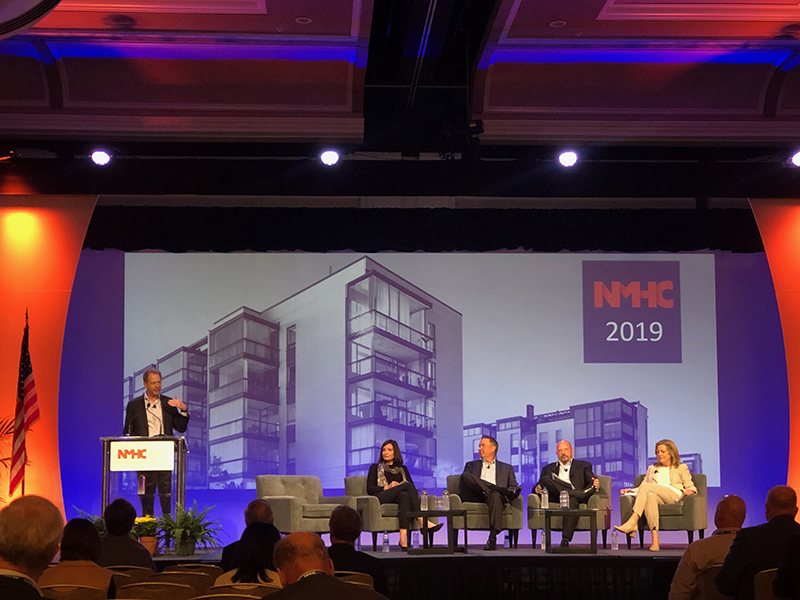Multifamily Firms Share Strategies for Success in the War for Talent

The workplace of today looks and feels much different than in past decades, with individuals retiring later and younger generations coming into the labor market with unique preferences. Strategies for having a successful organization have had to change as a result.
As noted in our previous blog from the 2019 NMHC Strategies Outlook Conference, there are currently five generations in the workplace, challenging employers to create an environment that meets a variety of needs. Multifamily owners, property managers and developers, in particular, are finding it increasingly difficult to attract and retain the right talent to fit their organization’s needs in the currently tight labor market.
For the first time on record, last year recorded more job openings in the U.S. than job seekers, according to the Labor Department. This suggests that employers may be finding it difficult to identify individuals with the right skills for the jobs available.
Creative Strategies to Attract Talent
Multifamily owners and managers gathered for a panel at the NMHC conference in San Diego to discuss the strategies they’re implementing to attract the right employees and entice them to stay with the organization for the long term.
Recruiting and promoting from within was one tactic discussed by Bill Bayless, CEO of American Campus Communities (ACC). As a student housing provider, ACC is able to hire many of its part-time employees through its network of student residents at its properties. The firm then puts these students through its employee development program to bring them on as full-time employees after graduation.
Bayless noted that 97% of the company’s property managers have a four-year college degree and the program has been “the infrastructure driving [the firm’s] growth.”
For Chris Payne, President of Sares-Regis Group, his firm has had success in acquiring talent by recruiting from other real estate sectors like retail and hospitality, where individuals possess many of the same skills needed to be an effective property manager.
He recognized that property management can be a tough business, so it’s important that high performers are well compensated and given opportunities for growth and development, Payne said.
Millennials Present a Unique Challenge
Recruiting younger employees can be especially challenging because of their specific qualifications and preferences for their ideal workplace.
Julie Smith, COO of The Bozzuto Group, observed that Millennials are unique in that they do thorough online research about the companies they’re interested in – reading reviews on sites like Glassdoor and checking their social media presence before going to an interview. They also put a great emphasis on company culture.
Because of this, “we spend a lot of time thinking about the experience of interviewing,” Smith said, nothing that companies use many of the same strategies that they implement to draw in renters.
Another challenge for multifamily, in particular, is that a lot of the technology and platforms used in the business are “clunky,” Smith said, and many Millennials mention how the lack of connectivity and integration of the technology is surprising to them.
As a result, it’s important for companies to invest in ways to streamline their systems and attract talented Millennials. After all, they are the largest generation in the U.S. labor force, according to the Pew Research Center.
Investing in the Older Generations
Millennials may be the largest cohort in the workplace, but Baby Boomers are still critical to a successful organization, noted Cindy Scharringhausen, SVP of Human Resources at Camden Property Trust.
Because the business is changing quickly, it’s important to keep older generations trained and help them develop the skills necessary in today’s work environment. It’s no longer about promoting people just because of their tenure. They need to possess the proper skills and be high performers, Scharringhausen said.
Smith added that this is especially important because Millennials want to look up to their supervisors and feel like they can learn from them.
“If young people feel like they’re running circles around their supervisors, they’ll leave,” she said.
“Companies are so focused on the customer journey, but there is an employee journey as well and there are pain points along the way,” Smith concluded. “It’s worth it to understand where those pain points are and when you’re at risk of losing an employee. If you want to provide an extraordinary customer experience, you have to provide an extraordinary employee experience and candidate experience.”

